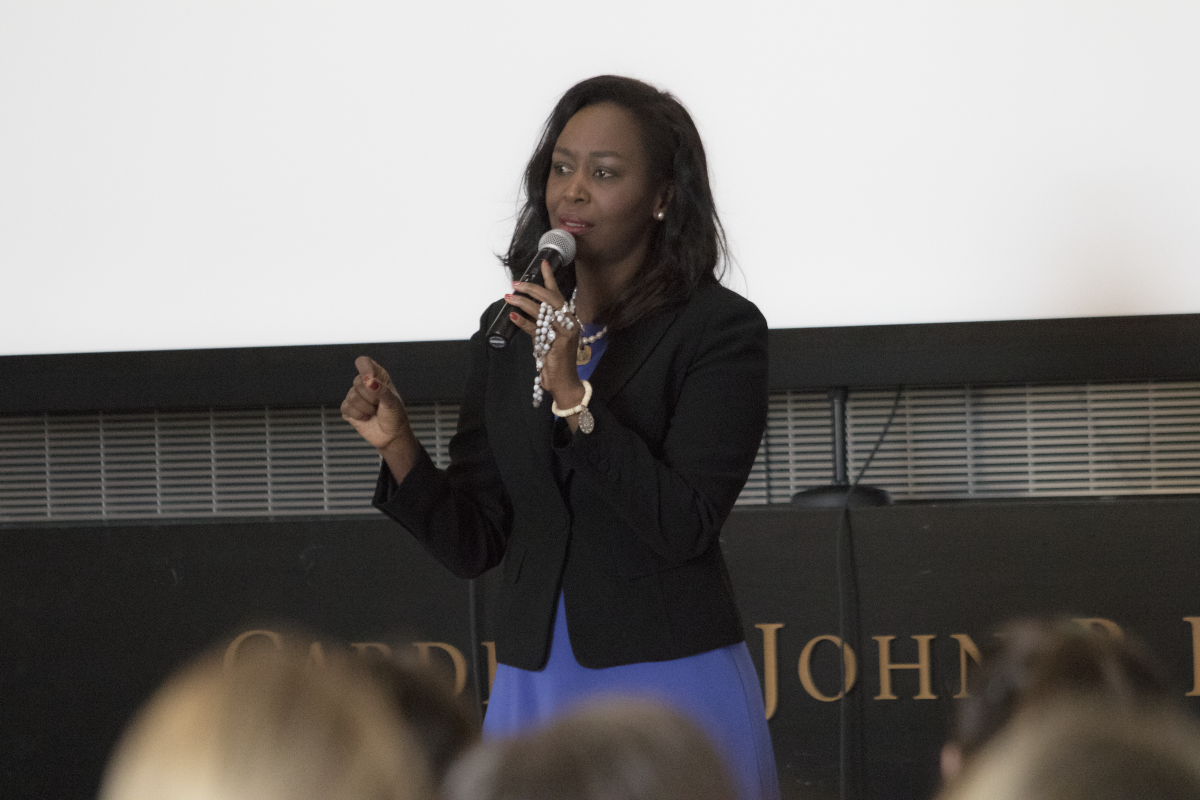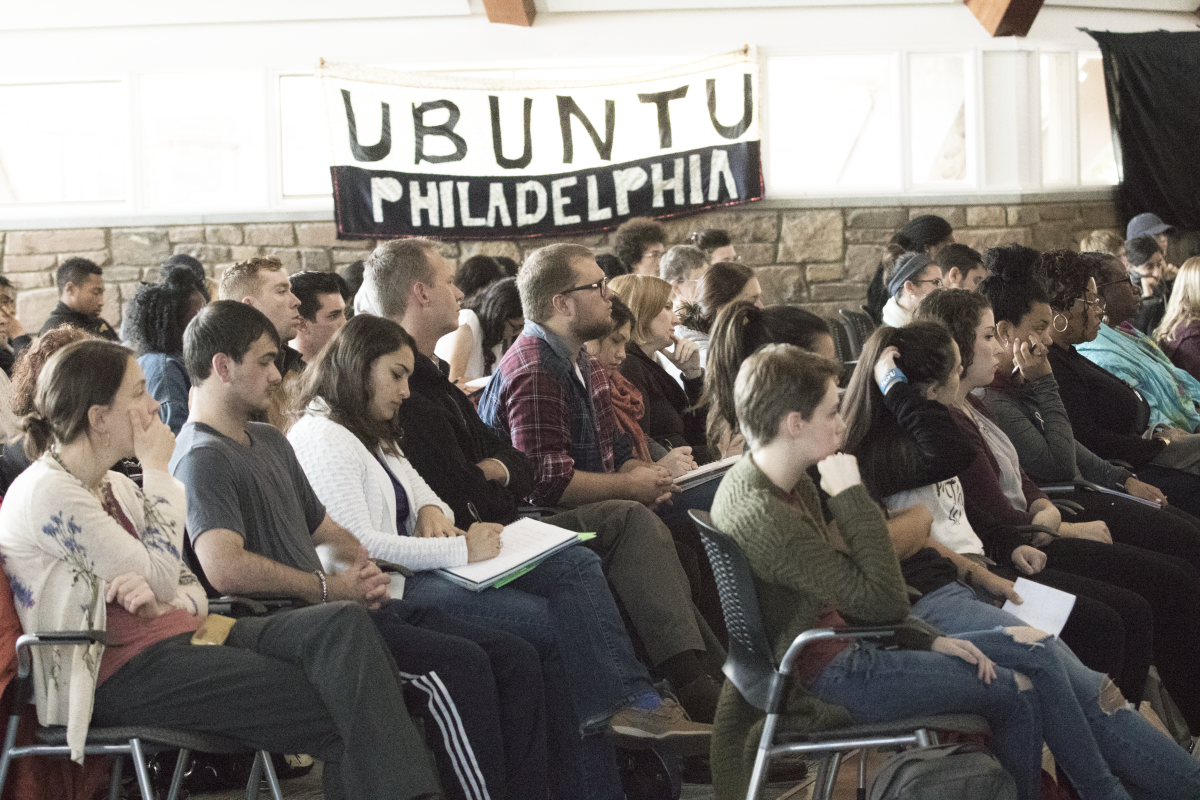Forum on restoring peace in our communities held at St. Joe’s
Through meditation, film, discussion, and conversation, “Ubuntu Philadelphia: A forum on Healing and Restoring Our Communities,” helped to focused on ways to heal communities facing violent crime and mass incarceration. The forum was held on Nov. 2 in the Cardinal John P. Foley Center.
Ubuntu, a Bantu word meaning, “human-ness” or “I am because you are” was an all-day event that began with a call from Kempis “Ghani” Songster, who was sentenced to life without parole as a juvenile. He explained how rulings in recent court cases, including Miller v. Alabama (2012) and Montgomery v. Louisiana (2016) prohibit mandatory life sentences for without the possibility of parole for juveniles. These decisions will allow hundreds of people who were convicted to be released back into society.
Songster recognized that for some, this is not a cause of joy, and asked, “How ready the community is for us [juveniles being released]?”
Songster explained that 300 of 500 juveniles sentenced to life without parole in Pennsylvania are in Philadelphia, which more than anywhere else in the country.
“The U.S. has a lot to learn about the relationship between healing, hope, and public policy,” he said.

Later in the day, the keynote speaker, Immaculée Illibagiza, author and survivor of the Rwandan genocide, spoke of her experience with forgiveness.
The Rwandan genocide was a mass slaughter of the Tutsi by the Hutu majority government which took place in 1994. Illibagiza, a 22-year-old student at the time, hid in the bathroom of a minister’s home for 91 days with seven other women in order to survive. During this time, over one million people were killed, including all of Illibagiza’s family, except one of her brothers.
“Every single person, from every tribe, was touched by the genocide…No one wins when there’s hatred going on,” Illibagiza said.
During this time, she listened to news reports of the killings on the radio, prayed, and learned English from a book given to her by the owner of the house.
“The moment came, and I can only say that forgiveness happened… What it felt like was freedom—freedom to live, freedom to love,” Illibagiza said.

In addition to Illibagiza’s speech, meditation and reflection were provided throughout the day in order to bring awareness to the community in Philadelphia and to provide resources including discussion circles, which brought families of victims and those who have committed violent crime together for healing. There was also a showing of of Samantha Broun’s documentary, “A Life Sentence: Victims, Justice and My Mother.”
“Only when we come together, in the spirit of ubuntu, can the healing begin,” Songster said.















































